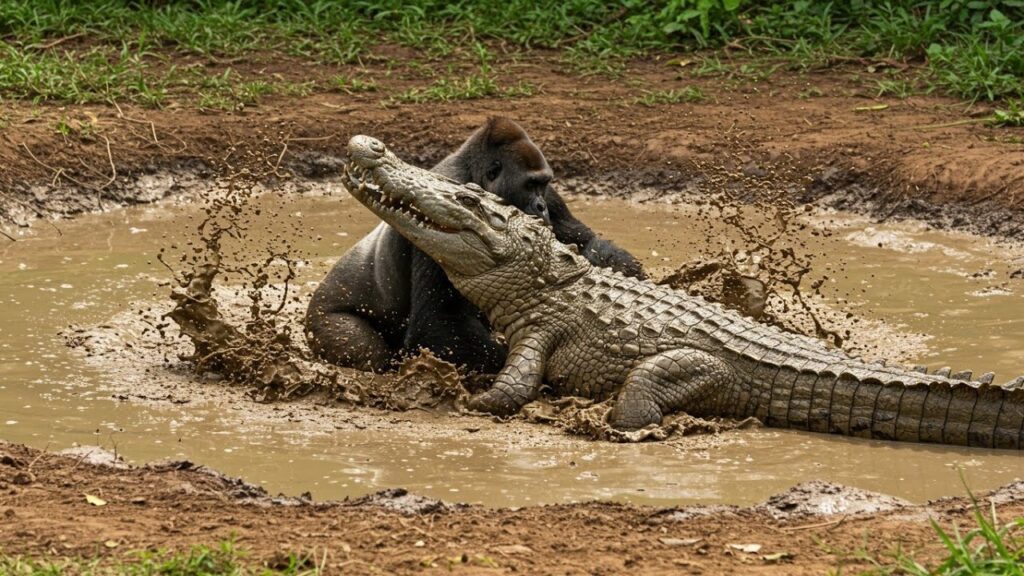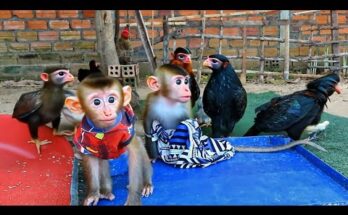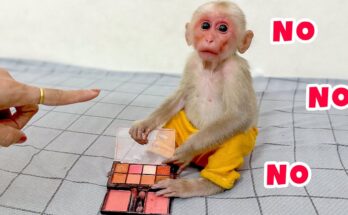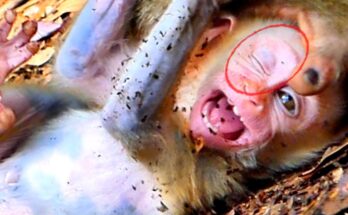
monkeys—were nowhere to be found. Her sharp senses picked up a scent near the river: a strange one. Not deer, not wild boar—but something large.
Creeping closer, Zari noticed a crocodile basking partly in the muddy bank. Its scaly body was caked in thick brown sludge, and it seemed sluggish—possibly injured or simply soaking in the heat of the morning. To most leopards, a crocodile would be too risky to approach. But Zari was desperate, and the mud had slowed the crocodile’s movement.
With careful calculation, Zari moved into position. She crouched low, her tail twitching slightly, muscles tense. Then—like a flash—she pounced.
Her claws landed hard on the crocodile’s back, and she sank her teeth into its neck. The crocodile, shocked, thrashed violently. Mud flew everywhere. The water turned into a brown swirl as the two powerful predators wrestled in a silent, deadly struggle.
The crocodile rolled, trying to pull Zari into the water. But the mud made it difficult to get a good grip. Zari, agile and determined, leapt off before she could be dragged down, then struck again from the side—aiming for the softer skin near the jaw.
The fight was fierce and brutal. The sounds of growls and splashes echoed through the forest. Birds took flight. Nearby monkeys watched from the trees with wide eyes, unsure of who would survive.
After several minutes, the crocodile, wounded and weakened, slid back into the water and disappeared beneath the surface. Zari stood, panting, covered in mud and scratches. She didn’t manage to kill the crocodile, but she had proven her strength—and walked away alive.
Zari didn’t get a meal that day, but she had sent a message to every creature near the riverbank: even crocodiles should be cautious when a leopard is near.
The forest soon returned to silence, the muddy waters still rippling from the struggle. And somewhere above, the hidden eyes of the wild remembered everything.


